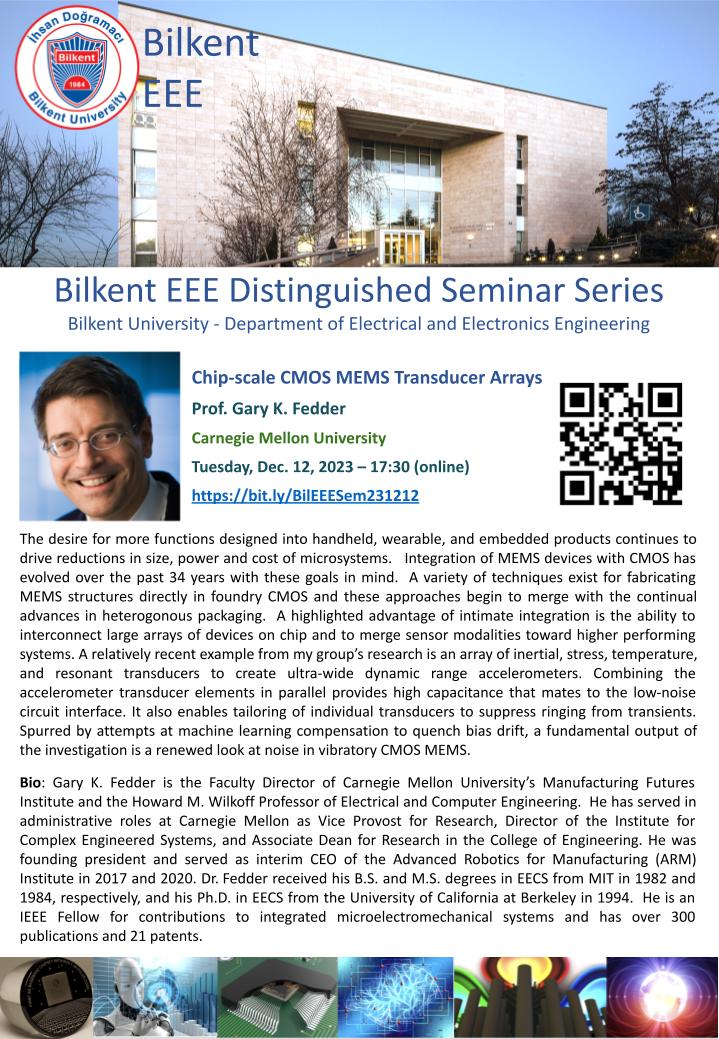
Prof. Gary K. Fedder
Carnegie Mellon University
Date/Time: Tuesday, Dec. 12, 2023 – 17:30 (online)
Chip-scale CMOS MEMS Transducer Arrays
The desire for more functions designed into handheld, wearable, and embedded products continues to drive reductions in size, power and cost of microsystems. Integration of MEMS devices with CMOS has evolved over the past 34 years with these goals in mind. A variety of techniques exist for fabricating MEMS structures directly in foundry CMOS and these approaches begin to merge with the continual advances in heterogonous packaging. A highlighted advantage of intimate integration is the ability to interconnect large arrays of devices on chip and to merge sensor modalities toward higher performing systems. A relatively recent example from my group’s research is an array of inertial, stress, temperature, and resonant transducers to create ultra-wide dynamic range accelerometers. Combining the accelerometer transducer elements in parallel provides high capacitance that mates to the low-noise circuit interface. It also enables tailoring of individual transducers to suppress ringing from transients. Spurred by attempts at machine learning compensation to quench bias drift, a fundamental output of the investigation is a renewed look at noise in vibratory CMOS MEMS.
Bio: Gary K. Fedder is the Faculty Director of Carnegie Mellon University’s Manufacturing Futures Institute and the Howard M. Wilkoff Professor of Electrical and Computer Engineering. He has served in administrative roles at Carnegie Mellon as Vice Provost for Research, Director of the Institute for Complex Engineered Systems, and Associate Dean for Research in the College of Engineering. He was founding president and served as interim CEO of the Advanced Robotics for Manufacturing (ARM) Institute in 2017 and 2020. Dr. Fedder received his B.S. and M.S. degrees in EECS from MIT in 1982 and 1984, respectively, and his Ph.D. in EECS from the University of California at Berkeley in 1994. He is an IEEE Fellow for contributions to integrated microelectromechanical systems and has over 300 publications and 21 patents.